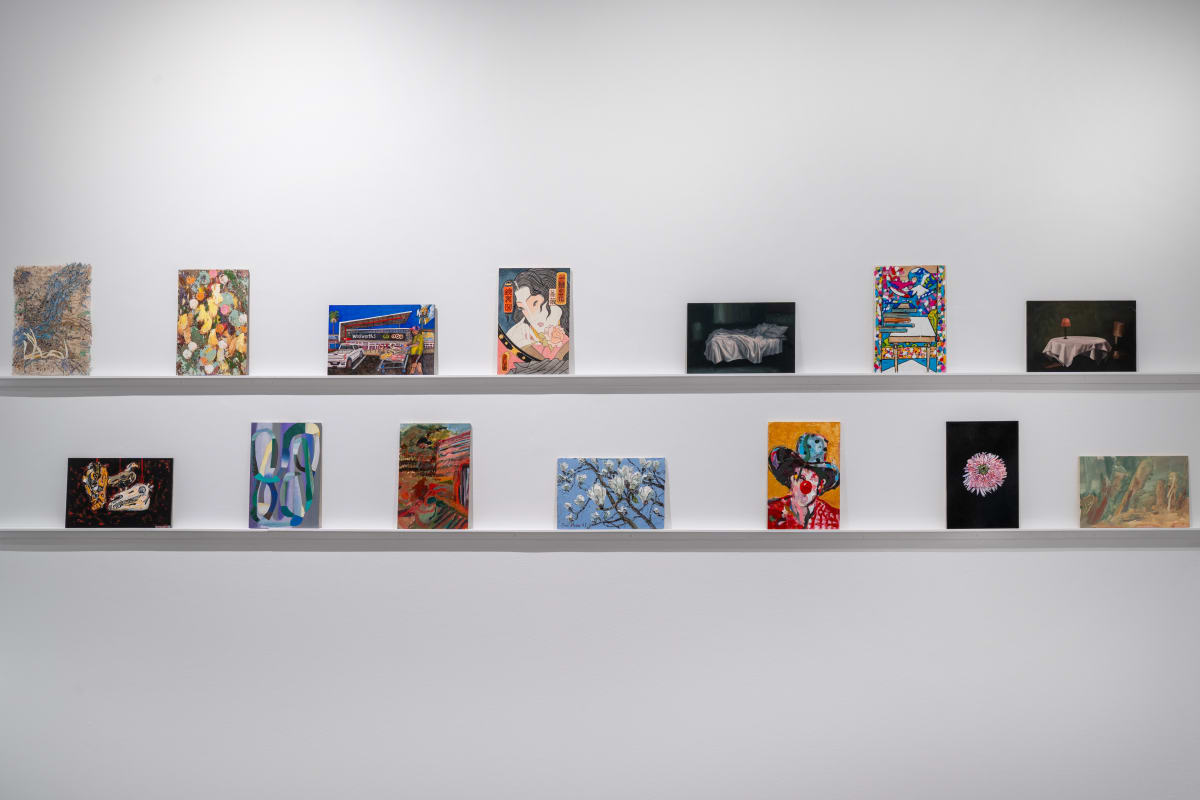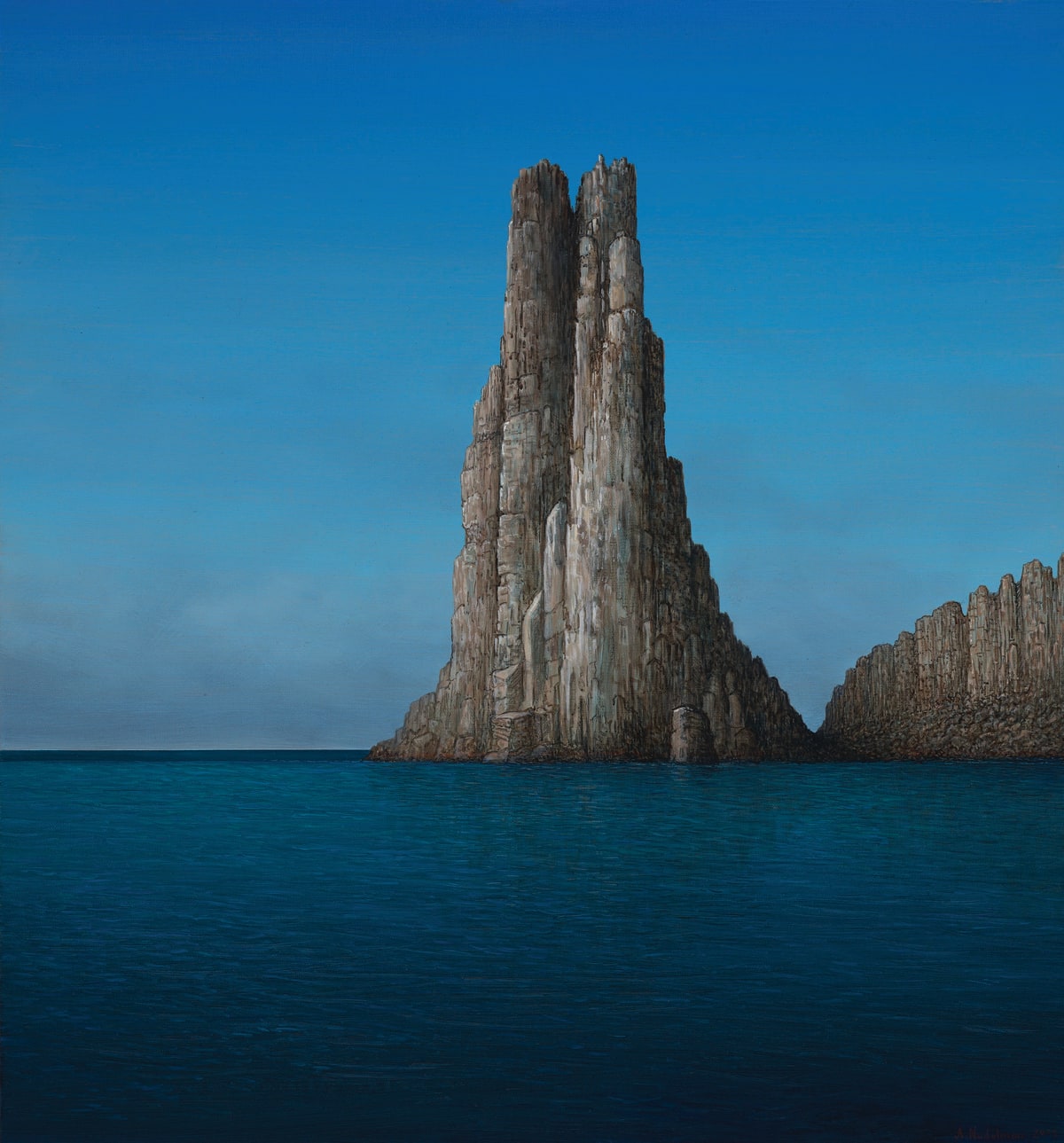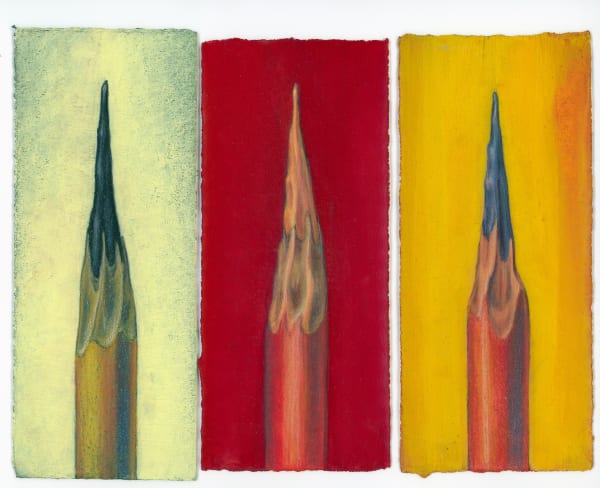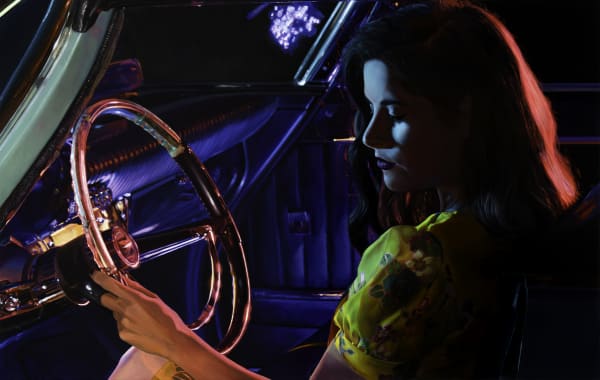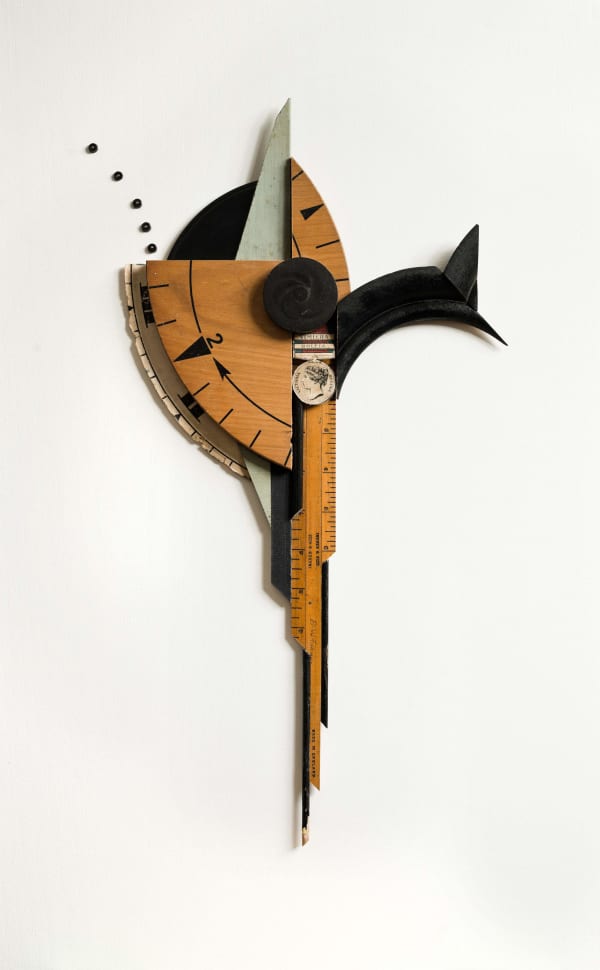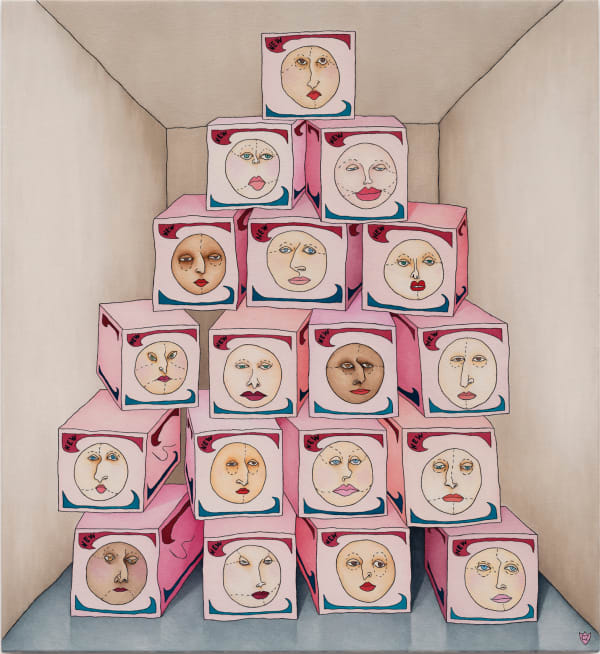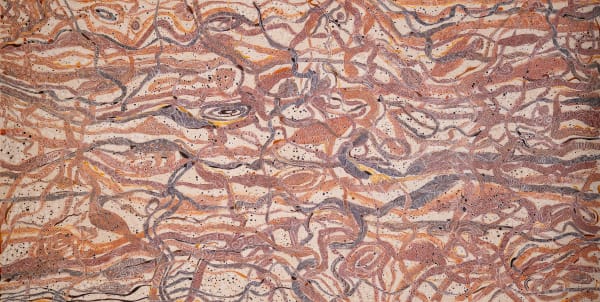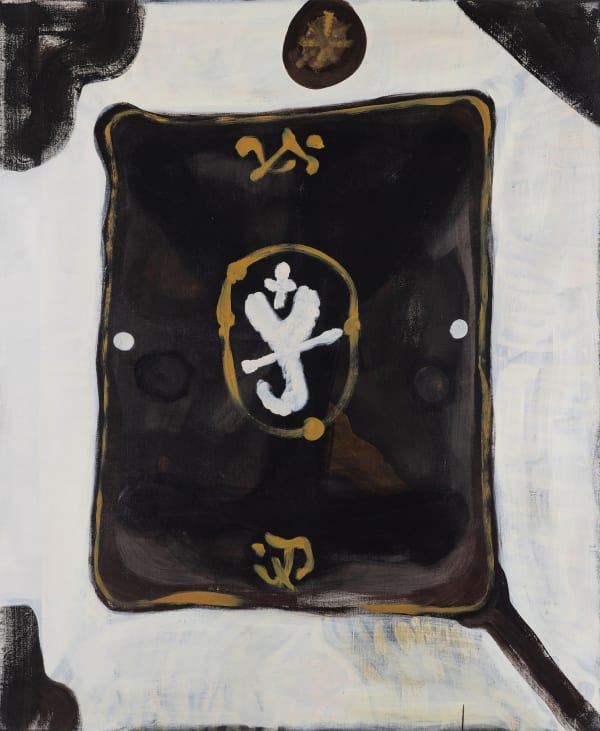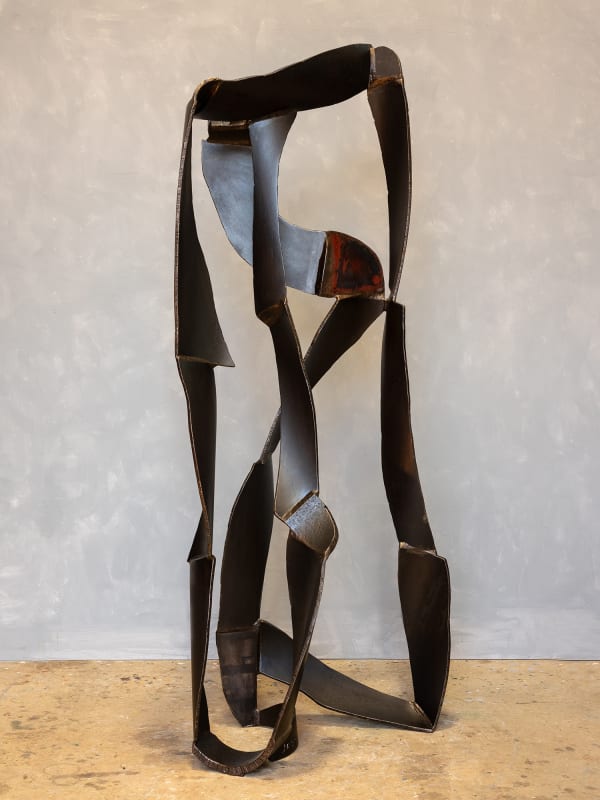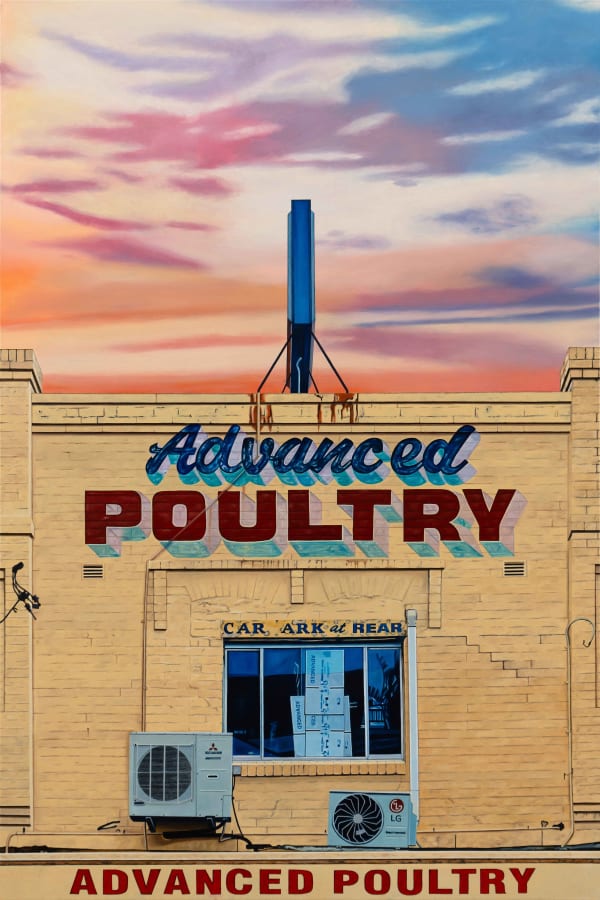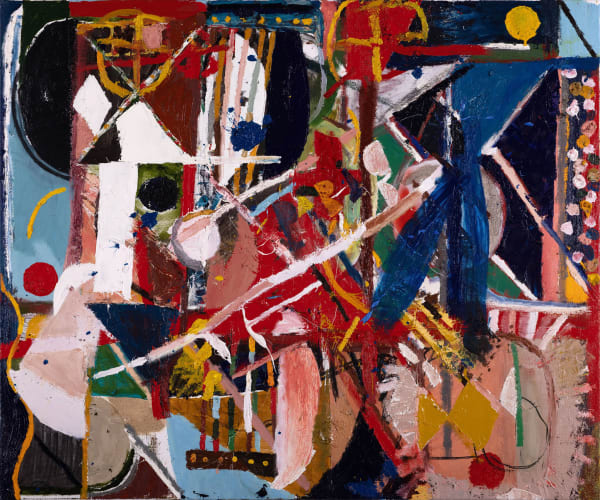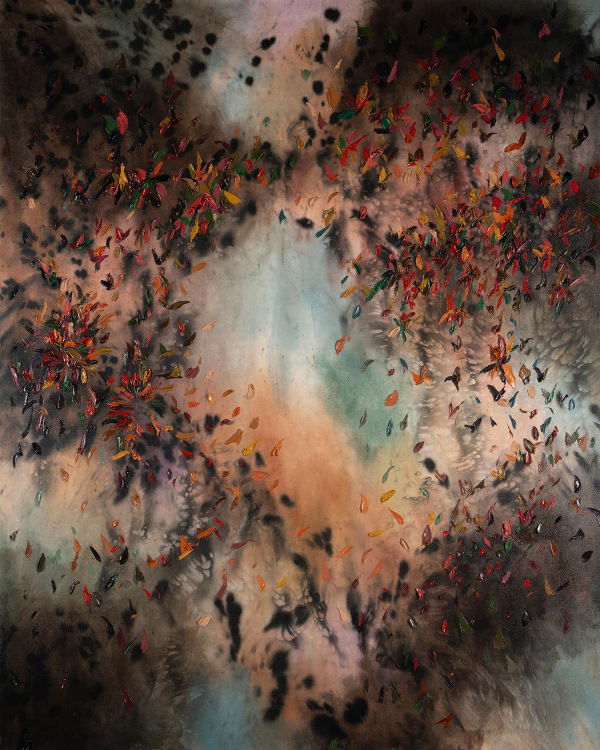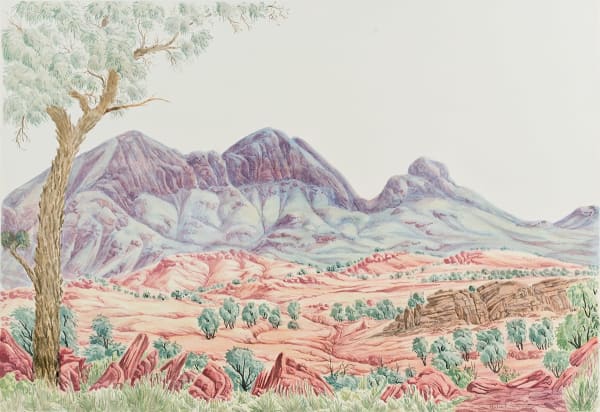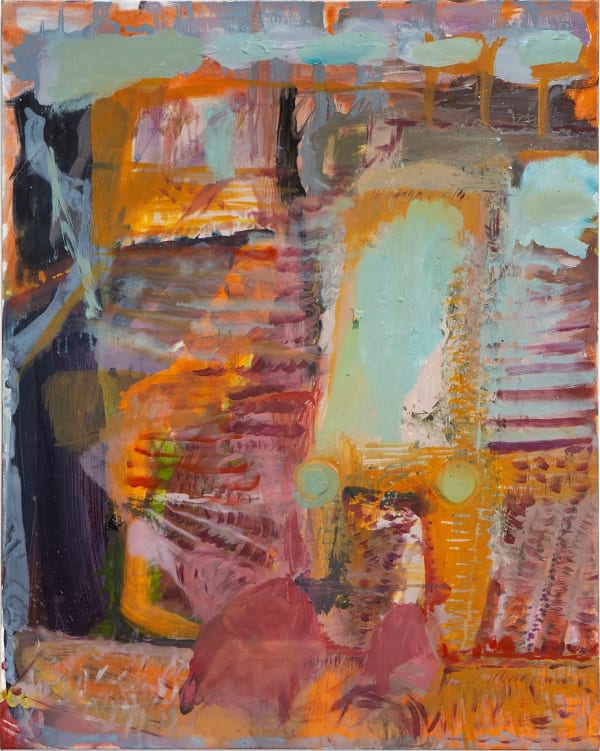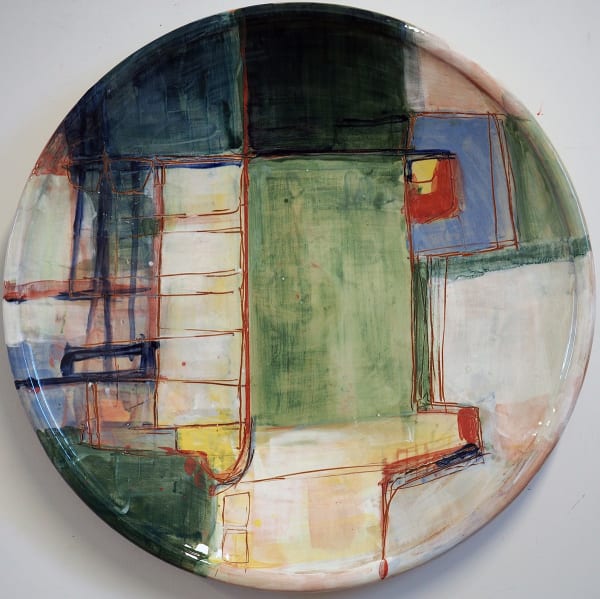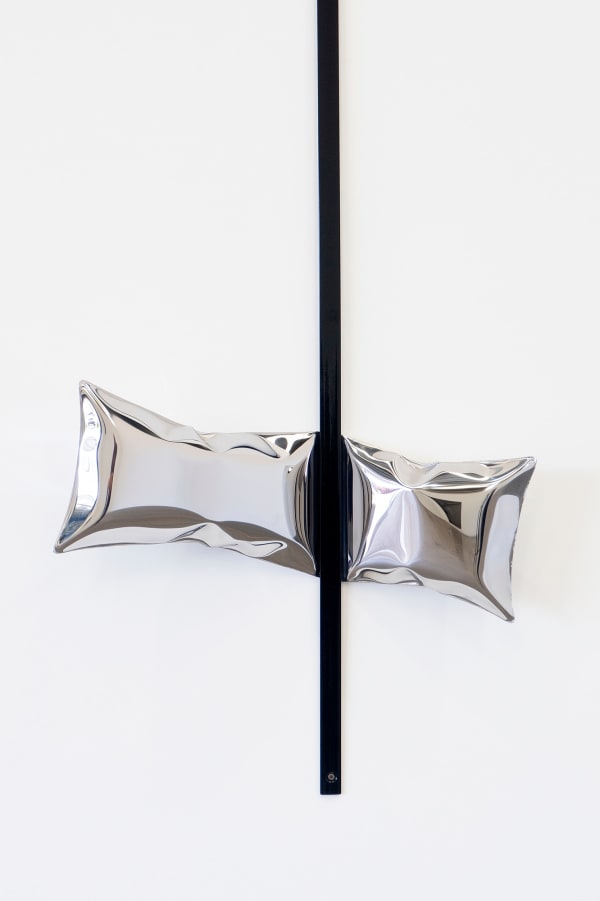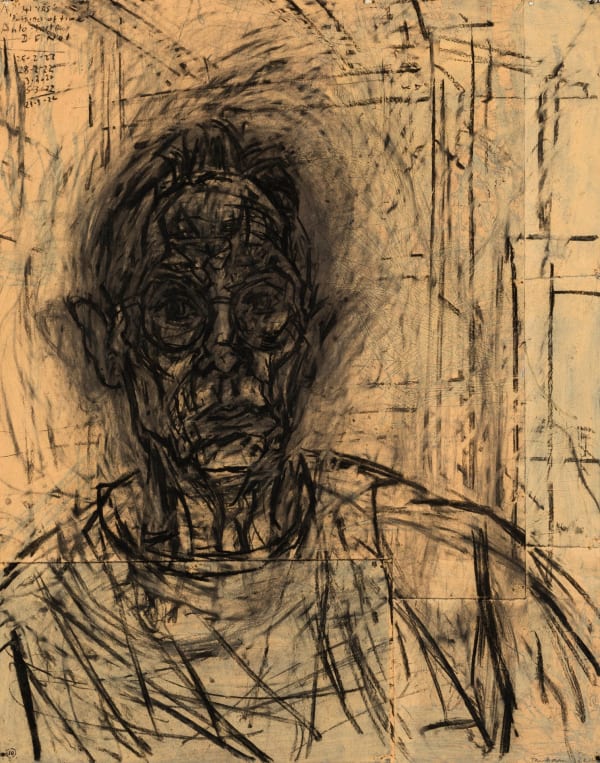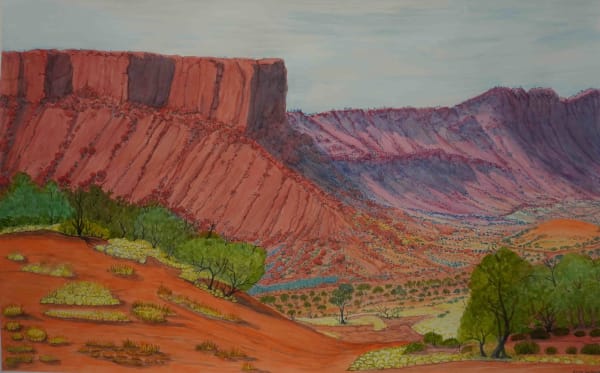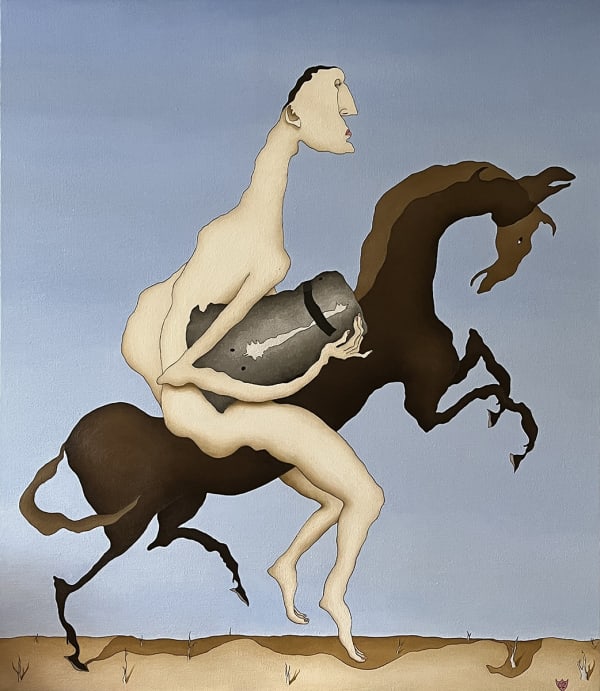Current
Past
-

Anchored by the Sun
James Drinkwater November 25 - December 19, 2025 GALLERY ONE, GALLERY TWO Read more -

Major \ Minor
Group Exhibition November 6 - 22, 2025 GALLERY ONE, LEVEL ONE Read more -

Bookmarks
Kim Spooner November 5 - 22, 2025 GALLERY TWO Read more -

Drive
Dianne Gall October 15 - November 1, 2025 GALLERY ONE Read more
-

Shadow Work
Matt Coyle October 15 - November 1, 2025 GALLERY TWO Read more -

The Trophy Room
Braddon Snape September 25 - October 11, 2025 GALLERY TWO Read more -

Someone Great
Brooklyn Whelan September 25 - October 11, 2025 GALLERY ONE Read more -

New Romantics
Group Exhibition September 4 - 20, 2025 GALLERY ONE, GALLERY TWO Read more
-

Lumina
Ben Smith August 14 - 30, 2025 GALLERY ONE Read more -

Restraint
Peta O'Brien August 13 - 30, 2025 GALLERY ONE, LEVEL ONE Read more -

Nightly, Daily
Andrew Sullivan August 13 - 30, 2025 GALLERY TWO Read more -

Empire Fall
James Powditch July 22 - August 9, 2025 GALLERY ONE Read more
-

Mirror Mirror
Caroline Zilinsky June 26 - July 19, 2025 GALLERY ONE Read more -

My Littoral Zone
Floria Tosca June 26 - July 19, 2025 GALLERY TWO Read more -

Return to Country
Jorna Newberry May 29 - June 21, 2025 GALLERY ONE Read more -

Where the Water Falls
Paul Ryan May 1 - 24, 2025 GALLERY ONE Read more
-

Night of the Dobermanns
Nick Santoro May 1 - 24, 2025 GALLERY TWO Read more -

Taut
Tony Mighell April 10 - 26, 2025 LEVEL ONE Read more -

Long Dawn
Lottie Consalvo April 1 - 26, 2025 GALLERY ONE, GALLERY TWO Read more -

Burgeon
James Rogers March 6 - 29, 2025 GALLERY ONE Read more
-

Rock Lobsters of the World
Roger Swainston March 6 - 29, 2025 LEVEL ONE Read more -

Top Floor
Donovan Christie February 5 - March 1, 2025 GALLERY ONE Read more -

World By Light
Brett McMahon February 3 - March 1, 2025 GALLERY ONE Read more -

PANEL
Group Exhibition January 23 - February 1, 2025 GALLERY TWO Read more
-

Tender Memories
Stephanie Eather, Nicola Higgins, Kirsty Neilson & Kate Nielsen January 16 - 30, 2025 GALLERY ONE, GALLERY TWO Read more -

École Des Arts: Just outside Toulouse
James Drinkwater November 18 - December 14, 2024 GALLERY ONE, GALLERY TWO Read more -

The Space Between the Lines
David Fairbairn October 24 - November 16, 2024 GALLERY ONE Read more -

Under the Canopy of a Lost Paradise
Adam Nudelman October 23 - November 16, 2024 GALLERY TWO Read more
-

Red Land
Jun Chen September 24 - October 19, 2024 GALLERY ONE, GALLERY TWO Read more -

Other Worlds
Group Exhibition September 3 - 21, 2024 GALLERY ONE, GALLERY TWO, LEVEL ONE Read more -

Winds of Change and Sands of Time
Suzanne Archer August 12 - 31, 2024 GALLERY ONE, GALLERY TWO Read more -

While Reading Wifedom
Katherine Hattam July 25 - August 10, 2024 GALLERY TWO Read more
-

The Serpent, The Courtesan and Other Japanese Fables
Yoshio Honjo July 23 - August 10, 2024 GALLERY ONE Read more -

Coming Home
Group Exhibition July 17 - 27, 2024 Read more -

Once Upon a Midnight Dreary
Group Exhibition July 13 - 20, 2024 GALLERY TWO Read more -

The Fruits of Spring and the Bats of Night
Christopher Horder July 2 - 20, 2024 GALLERY ONE Read more
-

New Paintings, Old Stories
Selma Coulthard June 20 - 29, 2024 GALLERY TWO Read more -

What I Have Held
Renata Pari-Lewis June 12 - 29, 2024 GALLERY ONE Read more -

Paintings
Matt Coyle May 23 - June 8, 2024 GALLERY TWO Read more -

Desiderium
Jason Cordero May 21 - June 8, 2024 GALLERY ONE Read more
-

The Indulgences
Peter Gardiner April 30 - May 18, 2024 GALLERY ONE Read more -

Siren
Dee Smart April 9 - 27, 2024 GALLERY ONE Read more -

Wild Thing
Jody Graham April 9 - 27, 2024 GALLERY TWO Read more -

When the Rain Tumbles Down in July
Kumantjai (Hubert) Pareroultja March 21 - April 6, 2024 GALLERY ONE, GALLERY TWO Read more
-

Melbourne Art Fair 2024
Jonathan Dalton February 22 - 25, 2024 ART FAIR Read more -

Le Capitaine
Paul Ryan February 8 - 24, 2024 GALLERY ONE Read more -

From Vernon Terrace
Stephanie Eather February 7 - 24, 2024 GALLERY TWO Read more -

Beautiful Things
Group Exhibition January 18 - February 3, 2024 GALLERY ONE, GALLERY TWO Read more
-

Poems
Morten Lassen November 30 - December 16, 2023 GALLERY ONE Read more -

Warp and Weft
Tony Mighell November 28 - December 16, 2023 GALLERY TWO Read more -

For Whom the Bell Tolls
Caroline Zilinsky November 9 - 25, 2023 GALLERY ONE Read more -

Prelude
Marie Mansfield November 8 - 24, 2023 GALLERY TWO Read more
-

Utopia
Kirsty Neilson October 18 - November 4, 2023 GALLERY TWO Read more -

Still Point
Kathryn Ryan September 28 - October 14, 2023 GALLERY ONE Read more -

Landscape And Memory
Group Exhibition September 2, 2023 - September 23, 2025 GALLERY ONE, GALLERY TWO Read more -

Still Patterned
Kate Nielsen August 15 - 30, 2023 GALLERY TWO Read more
-

American Salt: Montauk to the Bowery
James Drinkwater July 25 - August 12, 2023 GALLERY ONE Read more -

Shadow Lands
Christopher Horder July 6 - 22, 2023 GALLERY TWO Read more -

Suppression Order
Braddon Snape July 4 - 22, 2023 GALLERY ONE Read more -

Offerings
Luke Storrier June 14 - July 1, 2023 GALLERY TWO Read more
-

Medium Cool: Journalism in Film
James Powditch June 12 - July 1, 2023 GALLERY ONE Read more -

Future Pagan
Floria Tosca May 25 - June 10, 2023 GALLERY TWO Read more -

A Conversation with Drawing
David Fairbairn May 23 - June 10, 2023 GALLERY ONE Read more -

Wrack
James Rogers May 2 - 20, 2023 GALLERY ONE Read more
-

Goraku No Jikan
Yoshio Honjo April 13 - 29, 2023 GALLERY ONE Read more -

The Black Swan and Other Lost Poems
Jonathan Dalton April 13 - 29, 2023 GALLERY ONE Read more -

Apmarra Nuka
Kumantjai (Hubert) Pareroultja & Selma Coulthard March 21 - April 8, 2023 GALLERY ONE Read more -

Beyond Words
Morten Lassen March 2 - 18, 2023 GALLERY ONE Read more
-

Voilà
Jody Graham February 27 - March 18, 2023 GALLERY TWO Read more -

Recent Works
Nicholas Blowers February 14 - 25, 2023 GALLERY TWO Read more -

Kingdoms
Brooklyn Whelan February 6 - 25, 2023 GALLERY ONE Read more -

Superposition
Jason Cordero November 29 - December 17, 2022 GALLERY TWO Read more
-

Queer Corporeality
Kim Leutwyler November 29 - December 17, 2022 GALLERY ONE Read more -

Adapt or Perish
Peta O'Brien November 9 - 26, 2022 GALLERY ONE Read more -

The Island
Paul Ryan October 18 - November 5, 2022 GALLERY ONE, GALLERY TWO Read more -

Suspended Embrace
Dee Smart September 29 - October 15, 2022 GALLERY TWO Read more
-

Sydney Contemporary 2022
Nanda\Hobbs Booth September 7 - 11, 2022 ART FAIR Read more -

Bush Idyll
Jun Chen August 30 - September 17, 2022 GALLERY ONE Read more -

Barren Land
Caroline Zilinsky July 28 - August 13, 2022 GALLERY ONE, GALLERY TWO Read more -

Nikuhitsu Ukiyo-e (Hand-Painted Pictures of the Floating World)
Yoshio Honjo July 6 - 23, 2022 GALLERY TWO Read more
